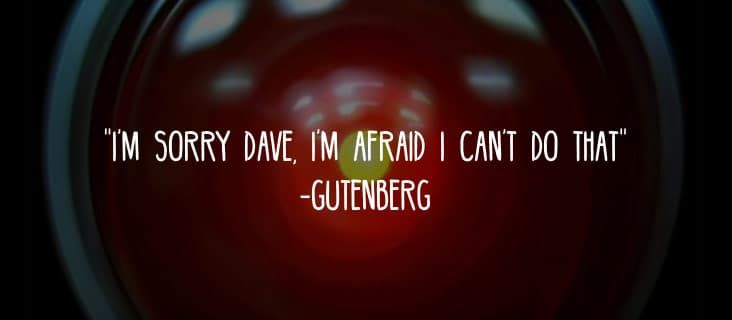
Future of the Web – Gutenberg is Facebook and WordPress is MySpace
Here at Beaver Builder, we’ve been closely following and participating in WordPress’ new editor project, Gutenberg. One of the challenges of building software is you want people using and testing it as early as possible, but the earlier you release something the further away it is from the end vision.
I think Gutenberg has suffered a lot from this problem. I love the term, “skating to where the puck is going,” and I think a lot of the criticisms of Gutenberg come from a misunderstanding of the vision of where the future of the web (i.e., the puck) might be heading.
I had the opportunity to do a presentation on Gutenberg for a local meetup. In my research, I read and watched a lot of content about Gutenberg from folks a lot smarter than I am. Folks like Chris Lema, Morten Rand-Hendriksen, and even Mr. Matt Mullenweg himself. This is a “standing on the shoulders of giants” post and my attempt to translate some of their cognitive wizardries in a way that us normal folks can grok.
MySpace and the Web 2.0 Revolution
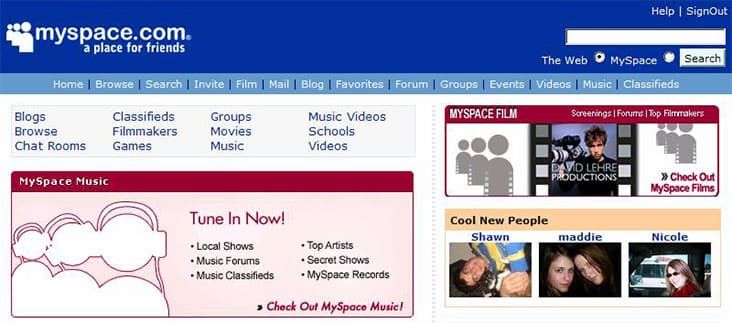
Do you remember MySpace? Do you remember how revolutionary it was at the time? MySpace, WordPress, phpBB, and a host of other technologies were born during the Web 2.0 revolution. To put it simply, Web 1.0 consisted of HTML, images, animated GIFs, and eventually CSS and a sprinkling of Javascript. In Web 2.0, server-side languages like PHP became much more readily available. They were no longer the domain of giant, wealthy tech companies. Folks like you and me could build dynamic websites, and non-techie folks could now create their own content! This availability and advancement of a new technology spurred a total revolution on the web.
You didn’t need to be a computer geek to publish things on the web. MySpace thrived. Online forums and message boards thrived. YouTube and Facebook were born. WordPress thrived!
I see WordPress today looking a lot like MySpace circa ~2004. On MySpace, you could create a page. You could upload images to that page. You could customize and add content and create posts on your page. Then, you could head over to your friend’s page and see their pictures, posts, and content. It was static. On the frontend, your WordPress website MySpace page looked the same to you as it did to everyone else.
Facebook is Blocks & Views!
How does this all tie into Facebook and Gutenberg? Gutenberg is introducing a new concept called blocks. “Everything will be a block,” right? All of the content on your site will be encapsulated and live independently of everything else in this new idea of a “block.” If you listen to our friend Morten, he explains these blocks will eventually be presented in “views.”
Let’s look at Facebook now. What happens when you go on Facebook and you want to share pictures from your vacation or write a review about the restaurant you checked out last night? You make a post. All your posts are encapsulated pieces of content that you can customize independently from all the other posts you’ve ever created.
It sounds a bit familiar, right? Facebook posts are blocks!
Now, when one pulls up their newsfeed on Facebook, what do they see? They see an auto-generated, personalized view of blocks from all of their friends, family, people, and brands, they want to follow. Unlike MySpace, or anyone’s WordPress site today, the content you see on Facebook is totally personalized by machine-learning tuned algorithms just for you. Facebook is ridiculously good at this. They’re almost too good. They show you the content that they “think”—well, that their AI thinks—will keep you on the site for the longest amount of time.
Facebook isn’t the only one doing this. Amazon is incredible at personalizing the content you see when you visit their site. If you buy a roll of paper towels, a few weeks later they’ll ask if you want to buy another. If you buy yourself a drone for Christmas, they’ll ask if you want to buy accessories like a case or an extra battery (and, yes, I may know this from personal experience 😄). Twitter, Instagram, Netflix, and all the big players are doing it—even the ones you only visit through incognito browsers.
Is Web 3.0 Around the Corner?
The reason the big companies are doing this is that it works! It works really well. A user is far more likely to spend time on your site or purchase from your store if the content presented to them is personalized.
Chris Lema writes and talks extensively about the idea of segmentation. How understanding your customer segments, and speaking directly to those segments in a language they understand, can boost the chances of users achieving the goals you set out for them.
When we started Beaver Builder, we didn’t have any idea who our customers were. We didn’t know if they were small businesses that wanted a website without having to pay a professional. Or, if they were web professionals themselves that build lots of websites for clients. Or, maybe they were hobbyists who wanted to share the love and knowledge of whatever their passion was with the world.
Through lots of work, conversations with customers, polls, etc, we learned that most of the customers fall into the “web professional” category. People that have a solid working understanding of web technologies, but they want to use an extensible and stable page builder to save time. Most of our users could build out pages by hand, but they choose to build them with Beaver Builder because it saves time and empowers their clients to take control of the websites when they’re finished.
Wrap it Up
Okay, I am getting sidetracked here. At one point, PHP and server-side technologies were not available to the general web user. They were complicated, expensive, and only leveraged by BIG companies with BIG working budgets. I think AI, machine learning, and content personalization are the next revolutionary technologies that are currently only available to BIG companies with BIG budgets.
Over the next one, five, ten years(?), this technology is going to get more and more accessible to the general web user and builder. Just like TinyMCE and PHP set WordPress up to be the goto CMS of the Web 2.0 era, Gutenberg and the new block/view paradigm sets WordPress up to be the go-to CMS for the next 10+ years. Gutenberg is bigger than just competing with Shopify or Medium. Much Bigger.
As AI, machine learning, and personalization technologies get simplified and move downstream, the block and view model positions WordPress in a perfect spot to leverage these technologies and bring powerful personalization tools to folks like you and me.
#Gutenberg is bigger than just competing with Shopify and Medium. The new block/view paradigm, combined with personalization, positions #WordPress to the go-to CMS for the next 10 years of the web. Share on XWhat do you think? How long will it take for personalization tech like AI and machine learning to become readily available? Does working on these futuristic ideas sound interesting to you? If so, you should check out our job listing for a developer…
37 Comments
Related articles
LifterLMS and Beaver Builder Integration: Effortless Online Course Websites
Introducing the LifterLMS and Beaver Builder integration. Streamline your online course website creation by combining powerful learning management tools with…
Figma to Beaver Builder: Design and Build WordPress Sites
Curious about converting Figma designs into WordPress websites? A smooth design-to-development workflow is essential for saving time and delivering top-notch…
Best Practices for Managing Web Design Clients
Managing web design clients effectively is one of the most crucial skills for a web designer, agency, or freelancer. Whether…
Join the community
We're here for you
There's a thriving community of builders and we'd love for you to join us. Come by and show off a project, network, or ask a question.
Since 2014
Build Your Website in Minutes, Not Months
Join Over 1 Million+ Websites Powered By Beaver Builder.
 Beaver Builder
Beaver Builder 

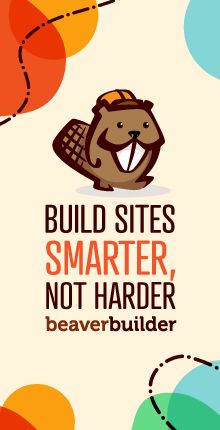
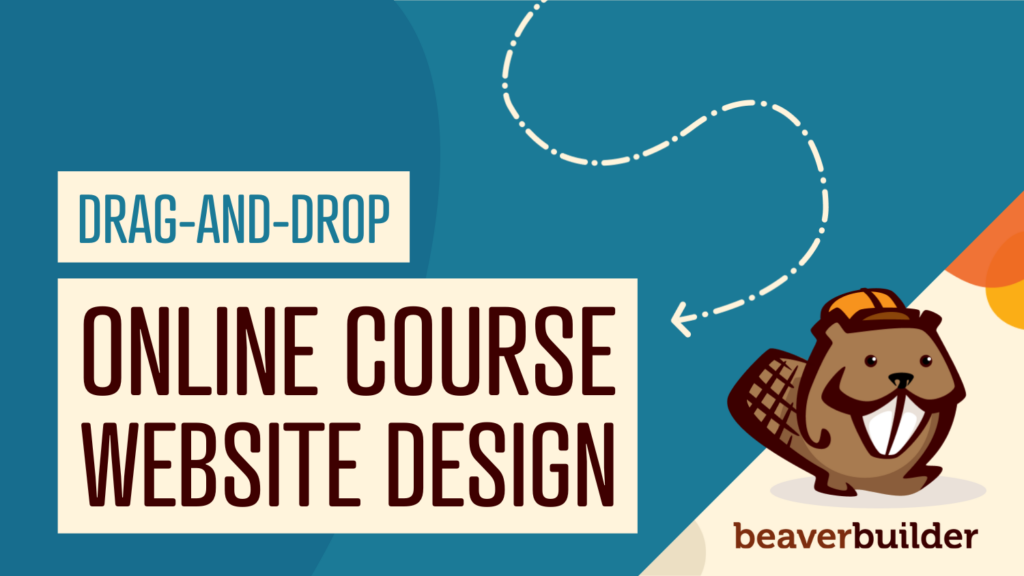
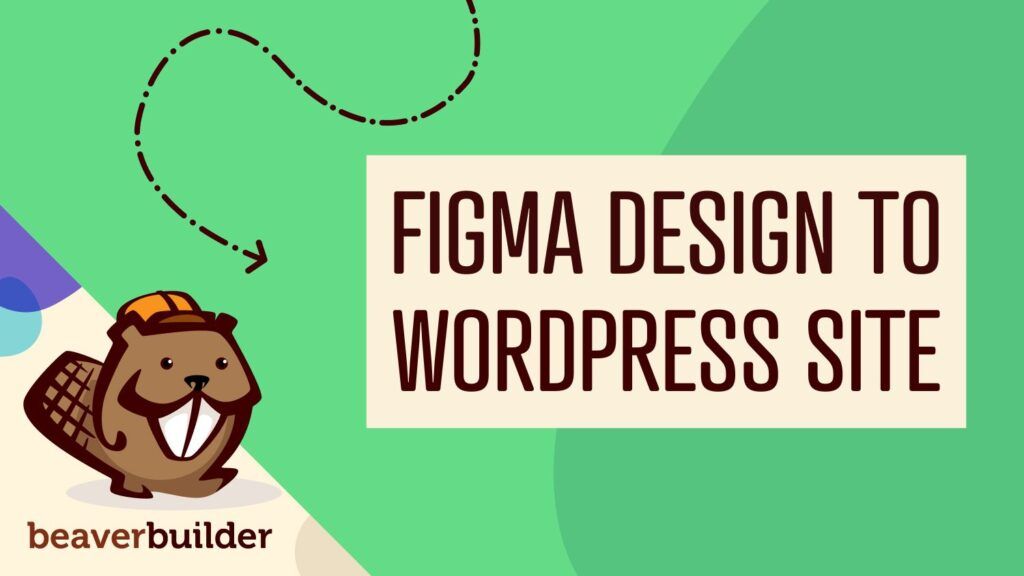
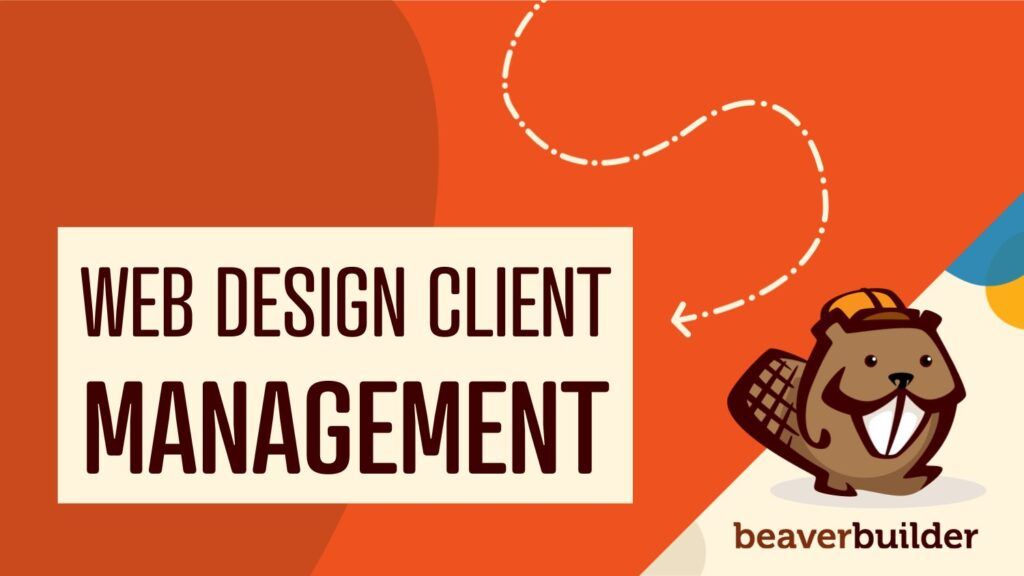
Interesting reading and I think you’re probably right. Things change, constantly, so Guttenberg probably is the logical next step. Like everyone though, I have my serious reservations about the state of implementation at this point in time, especially so close to the intended launch date – I’m keeping archive copies of every WP release up until 5 just in case; plus I am fully invested in BB and Themer, so I feel I am pretty well covered 🙂
In regards to AI, that is a more interesting complex question. Undoubtedly it will have massive and far reaching impact on everything around us, it already is. How this will manifest itself at more basic levels, say an SME website, that might be harder to say. If the accessibility and cost comes down enough, AND the price tag is within reach, I could see being implemented in ways you discussed, at even the small level, where websites become ‘intelligent’, serving up content based on visitor’s past interactions. Could be really cool if you think about it, even for something as ‘basic’ as a content laden blog.
I’m sure there are people working on bringing this technology downstream!
You explained it very well. Thank you for that. It will be interesting to say the least.
Thanks! It’s going to be an interesting few years here for sure!
So WordPress is to become a BMS?
That’s ‘Block Management System’, in case you didn’t know 😉
Having worked a decent number of years in data-driven marketing the above makes sense. Devs should get it too as it’s good practice to build applications in blocks that can be used and re-used, so the paradigm is a known one.
Not to mention block chains.
What isn’t so clear is the path to this new model and how blocks will be handled by the current page builder solutions. It will be interesting to see how you guys handle these, as well as the new builders conceived and built specifically for handling blocks.
I’m also interested to see if licencing solutions offered by the likes of po.et will allow content owners to manage ownership and distribution of individual blocks. For example, setting different rights for a pic an article than the copy, in the context of a group of blocks (the article itself).
Interesting! I’d heard of po.et, but I did more reading up on it today. Good comment. I am curious to know more too!
How will B.B. interact with Gutenberg? Will there be any compatibility issues?
We have a proof of concept build with Gberg compatibility all dialed in. It will probably launch in 2.1, but we may hold off a bit longer to see if the core team changes things. So far, we’re focusing on a seamless transition between Gberg and BB, but we may do more with blocks and deeper integration in the future.
I am not super smart, but it seems to me that Gueteberg quite a ways away from a BB template system or WPBakery modules.
The framework it is built on will allow more, but isn’t that what it is?
I think BB customers want to know if Guetenberg is going to the front end.
It is clear people are interested in a front-end editor. I keep several working front end editors up so I can continue knowing their features. It has been expensive, time consuming and a bit frustrating, however people really do want dead simple editing of advanced content in a browser.
It has progressed really slow to be honest and many specs of the web left out such as advanced css properties, SVG, and masks just to name a few.
Wysiwyg editors have segmented big time because people like it! Squarespace, to Webflow all the way to Guetenberg. Representing an abstraction of the front-end.
This is creating lots of confusion because more than anyone BB customers clearly don’t want a CMS editor, they want a wysiwyg experience. The faster smart, intuitive systems allow for implimentation of web spec the happier it seems people will be.
Perfect answer! My thoughts exactly! Love it!
Facebook developers are also adding a twist to the game by releasing HHVM and React. Facebook developers may be leading the Web 3.0 transition
Yup! They recently released “Detectron” too:
https://github.com/facebookresearch/Detectron
Which React and front end frameworks like Angular follow the “Block” method with Mvvm architecture. Instead they’re called components.
If you think Gutenberg cant do something then you can always submit a patch to the github repo. I think you are afraid…fear is not always bad..you can see this as an opportunity.
Is that possibility as Gutenberg will try to force retirement of all page builders?
I’m afraid..!
Please advice.
This will happen, better to stop developing for 3rd party page builders as you are only fighting a loosing battle. You can start contributing to the future of WP with GutenBerg.
Roger.
I don’t believe Gutenberg is forcing the retirement of page builders not in the short to medium term at least. Having said that there will more than likely be a market for premium blocks that extend Gutenberg’s capabilities perhaps BB will become a player in that market.
Gueteberg has a very long way to go. I’m really worn.down by the speculative nature of this. BB could have a more robust feature set. Think of all the current web specs that aren’t supported in any builder. Why isn’t their.global systems rather than blocks? BB css tween enging, BB SVG inliner, BB parallax engine. Look.at.almost any other software plugin. If I get a plugin in for 3D I can apply that on any object. If I add color correction I can apply it to anything the software supports. Some of these libraries are being tucked away by both WP and builders. I would like to see these libraries built as option slider or selections on all objects.
Amen
Very interesting article and all this about Gutenberg….. I think down the road the framework of Gutenberg blocks will be the most useful not the editor we see now. BB can co-exist with Gutenberg and its blocks so u get the best of both worlds. I would assume there will be some kind of Gutenberg-api that for developers to allow access to the blocks framework?
At the same time we are seeing the RESTapi on the frontend that can change the way apps are built….. communicating with blocks on the WP backend.
What an exciting time for WP….
Thanks for the nice article..
Mel
Hello, Robby. Thanks for the information. I wanted to ask sometimes: Do you have an idea when Guttenber will be live across all WordPress websites? (apologize if thia was mentioned – I haven’t saw it). Thanks again!
I don’t believe the core team has announced a release date yet. The information has been a bit vague. In the SOTW, Matt mentioned Gberg would be ready for a mass audience in April. We’ll see.
Hope Gutenberg doesn’t mess with Beaver Builder. I love BB and Themer and can’t live without them now. I’ve heard there was some mass hysteria about it but didn’t catch those details as to why people are afraid.
Thanks, Mark. We’re not planning on going down easy, haha. Our hope is that Gutenberg is going to grow the WordPress ecosystem and we’ll continue to try and offer more than the core WordPress experience.
Do you remember what killed MySpace?
“How long will it take for personalization tech like AI and machine learning to become readily available? ”
For this question, I don’t know which level for ” readily available” . You mean ” readily available ” for everyone like each person has their smart home, or robot. For that level, I think this will happen in many many years laters. But for limit ” readily available” , i think it will happen in fifty years later with the fast development of AI vs Machine learning.
As a consultant who uses a WP website, I have had a play with Gutenberg and I am afraid that WP is forgetting it’s core audience – bloggers and small businesses who have WP sites designed and then write simple blog posts.
The ability to write something in Word and upload it into WP is fundamental to likely 75% of users. Now we cannot even write a new title or a new paragraph without a new block.
It is ludicrous. These users will leave.
I have another site on Kajabi. It is beautiful. It is easy. It does what it says and when it updates, THEY make sure that it works.
Costs you $119 a month you say… Nothing compared to the web design fees for my WP site every few years AND the hosting AND the paid plugins. But until now that had been worth it.
Now…? I don’t think so.
So, you developers and consultants and big publishing companies have fun. Wordpress is not what it was, an open project for the people. It is now something else entirely…
Which makes your FB example apt. Remember FB persuading small businesses to spend money on getting fans for FB pages because we will be able to reach them at the click of a button? That was until it suited them to change the algorithm and make us pay again and again and again to reach them.
You explained it very well Robby. Thank you for that. 🙂
Well said wordpress is myspace, thanks for good example
Thanks!!
Thanks a lot for your explanation
Thank you for your amazing explanation
Thank you robby. You tell us in a good way…
well explained buddy. Thank you for this..
Great information about Myspace. Thank you!
Very well explained. I am using gutenberg on my website and it is great. It has many features.
Every time I see editors and customisers that allow people to select an unlimited number Google Fonts or make changes beyond the selection of CSS classes, I just think of the terrible performance that will result from inline CSS and an increased number HTTP requests.
WordPress occupies an important space between hand coding and platforms like Wix or Squarespace. It would be a shame if the default was to move too far in either direction.